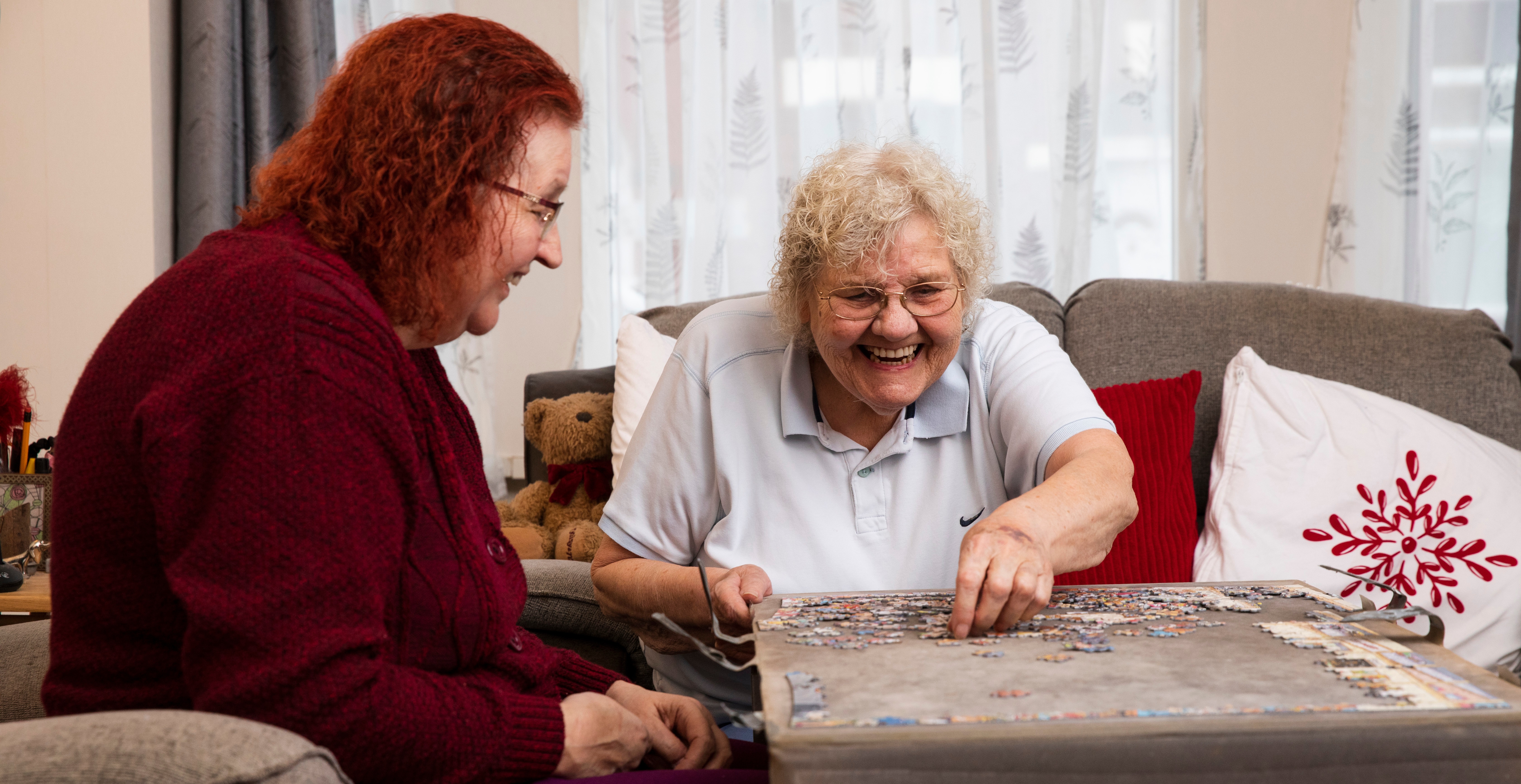)
The contribution of collaborative housing to social care in later life
Dr Jim Hudson, University of Bristol
With the social care system in growing crisis, there’s an urgent need to look at every innovation in housing, ageing and care that might help support us as we get older. The ongoing CHIC (Collaborative Housing and Innovation in Care) research project looks at innovative self-managed housing schemes, asking what lessons can be learned from such projects in terms of future social care planning.
WHAT IS COLLABORATIVE HOUSING?
Housing projects that are user-led and self-organised – collectively known as collaborative housing – have long been recognised as having the potential to meet our changing needs as we get older, especially for those of us who don’t have close family support, who live alone, or who fund our own social care. The most talked-about of these models is so-called senior cohousing, where groups of older people are involved in the design and management of their own housing scheme; members each have their own homes, but also share resources such as a community space, laundry and garden. Most importantly, they commit to mutual support in later life, ‘looking out for but not after each other’ (to quote one of the groups involved in our study).
WEIGHING UP THE DIFFERENT FORMS OF COLLABORATIVE HOUSING
Our research won’t be complete for another year, but some findings are already emerging. Firstly, it’s clear that self-made communities (such as cohousing) have been very successful in the way residents provide informal support, built on a commitment to each other of mutual respect and sociability. But such groups stop short of collaborating over their social care needs, so we’ve also included case studies of some other models – self-managed extra care developments and housing co-operatives that jointly procure social care services – from which we’ve learned that there are distinct advantages to self-management in contrast to top-down provision. It seems though that a scheme that combines the advantages of both models might be hard to achieve, with trade-off necessary between the autonomy of collective housing and the security of social care needs being met.
Despite much optimism, there’s not been much solid research about collaborative housing schemes in the context of social care, and even less about other models that also fall under our broader definition of collaborative housing. We’ve spent the last year talking and engaging with members of three cohousing projects and other collaborative schemes that are managed by the older people who live in them. It’s clear from our work so far that there are many benefits to ageing in cohousing communities, not least that being a part of a close, supportive community in later life is a clear antidote to social isolation (especially, we heard, through the pandemic) and the potential health problems that go with it. But we did also find that although many cohousing members have practical long term care needs, a line was drawn at planning or organising personal care collaboratively rather than on an ad hoc basis.
By contrast, two of the other groups included in our research – one a housing co-operative for older people, the other a self-managed retirement village comparable to a small extra care scheme but where residents have a legal right to manage – employ their own support and care agencies, so can more easily address personal care needs as a group. While there are forms of mutual support among these communities as well, overall, they had a more top-down feel than the cohousing schemes. In one sense that’s not surprising, as the cohousing members consciously committed to living together and supporting each other, and also have nobody employed in a management role alongside them. But perhaps having those services on hand relieves the pressures of maintaining a commitment to each other over many years.
THE LESS OBVIOUS BENEFITS OF COHOUSING
It’s important not to overlook some of the less obvious benefits of cohousing. Despite drawing a line at personal care, in practice many members went much further in supporting their neighbours in practical ways during short term illness. And even more importantly, we found examples of what we’re calling care advocacy – where group members help organise and negotiate with disparate health and social care services for a particular person, in one case someone without family close by who might traditionally take on that role. But there were also concerns about how sustainable this kind of support might be as the group as a whole gets older. We had a sense that planning around this is sometimes avoided, in favour of a commitment to prevention, to the (very valid) idea that membership of a supportive community group helps members live in better health for longer – a finding that was supported in previous research we did on the links between collaborative housing, loneliness and wellbeing.
CONCLUSION
The different models of collaborative housing, especially those that engage directly with social care provision, have much to offer in improving the support options for all those with social care needs. All of these different approaches bring real benefits, especially when compared to other less collaborative options: each offers a chance of much greater independence than housing run ‘top-down’ by others, and the better quality of life and sense of wellbeing that comes with this greater sense of agency.
Read NIHR Social Care Speciality posts here →




